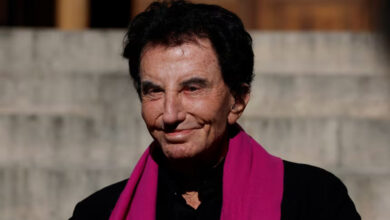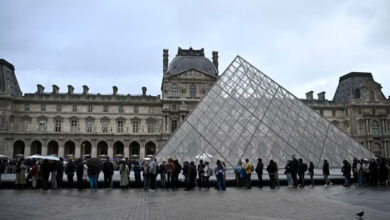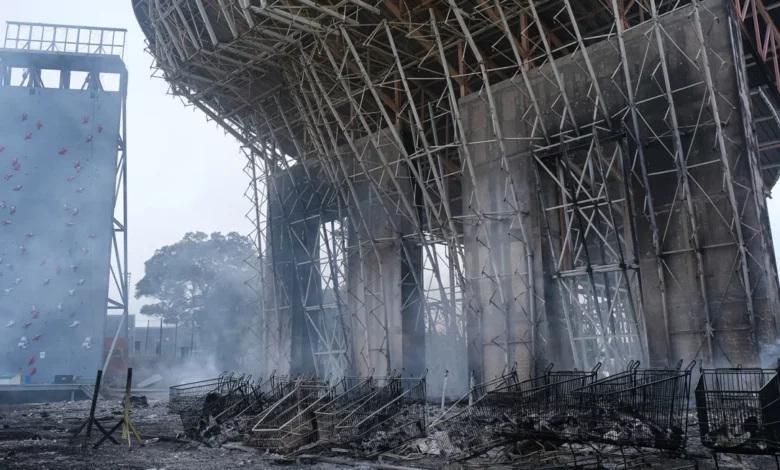
Deadly violence on the French island of New Caledonia erupted for a third day Wednesday, with armed clashes between protesters, militias and police, and buildings and cars set on fire in the capital of the South Pacific archipelago.
At least three people have been shot dead during the unrest, which is considered the worst since the 1980s, and prompted authorities to impose a curfew in the capital Noumea. It has also banned public gatherings, carrying weapons and selling alcohol, and closed the main airport — usually a busy tourist hub — to commercial traffic.
The violence is the latest outburst of political tensions that have simmered for years and pitted the island’s largely pro-independence indigenous Kanak communities — who have long chafed against rule by Paris – against French inhabitants opposed to breaking ties with their motherland.
France’s military has mobilized and flown in “four additional squadrons to restore order,” according to French Interior Minister Gerald Darmanin.
Lying in the South Pacific with Australia, Fiji and Vanuatu for neighbors, New Caledonia is a semiautonomous French territory — one of a dozen scattered throughout the Pacific, Caribbean and Indian Ocean.
Protests began Monday involving mostly young people, in response to the tabling of a vote 10,000 miles (17,000 kilometers) away in the French parliament proposing changes to New Caledonia’s constitution that would give greater voting rights to French residents living on the islands.
On Tuesday, legislators voted overwhelmingly in favor of the change.
The move would add thousands of extra voters to New Caledonia’s electoral rolls, which have not been updated since the late 1990s. Pro-independence groups say the changes are an attempt by France to consolidate its rule over the archipelago.
“The last two days we’ve seen violence of a scale we haven’t seen for 30 years in New Caledonia,” Denise Fisher, a former Australian Consul-General in New Caledonia, told CNN. “It is kind of marking the end of 30 years of peace in New Caledonia.”
“The Kanak people are objecting to [the vote in France] not just because it’s been decided in Paris without them but also they feel that they want it to be part of a negotiation … which would include another self determination vote and a range of other things.”
French President Emmanuel Macron called for calm, issuing a letter Wednesday to New Caledonian political leaders urging them to “unambiguously condemn all this violence” and inviting both pro- and anti-independence leaders to meet him “face to face” in Paris.
Macron will chair a defense and national security council on Wednesday, focusing on the violence, the presidential palace said.
Macron’s administration has pushed for a pivot to the Indo-Pacific, stressing that France is a Pacific power, as China and the United States beef up their presence amid a battle for influence in the strategically important region. New Caledonia is at the center of that plan.
“The stakes are high for France,” Fisher added. “France has identified an entire Indo-Pacific vision for itself.”
“The legitimacy of France’s participation this way, having an influence in this way, is in question when you have scenes like this.”
The violence
Three people – two men and a woman, all indigenous Kanaks – have been shot dead in the violent protests and looting, according to Charles Wea, spokesperson for Louis Mapou, President of the Government of New Caledonia.
Demonstrators have also set fire to buildings and cars in Noumea, defying a curfew that has been extended to Thursday.
Thick plumes of black smoke covered the capital on Wednesday morning, social media video showed. Images showed burned-out cars, fires in the street, and shops vandalized and looted.
“Some are equipped with hunting rifles with buckshot as ammunition. Others were equipped with larger rifles, firing bullets,” the French High commissioner to New Caledonia Louis Le Franc said.
More than 140 people have been arrested, while at least 60 security personnel have been injured in the clashes between local nationalist groups and the French authorities, according to Le Franc.
One Noumea resident told CNN affiliate Radio New Zealand of panic buying reminiscent of Covid-19. “A lot of fire, violence…but it’s better I stay safe at home. There are a lot of police and army. I want the government to put the action for the peace,” the person told RNZ, asking to remain anonymous.
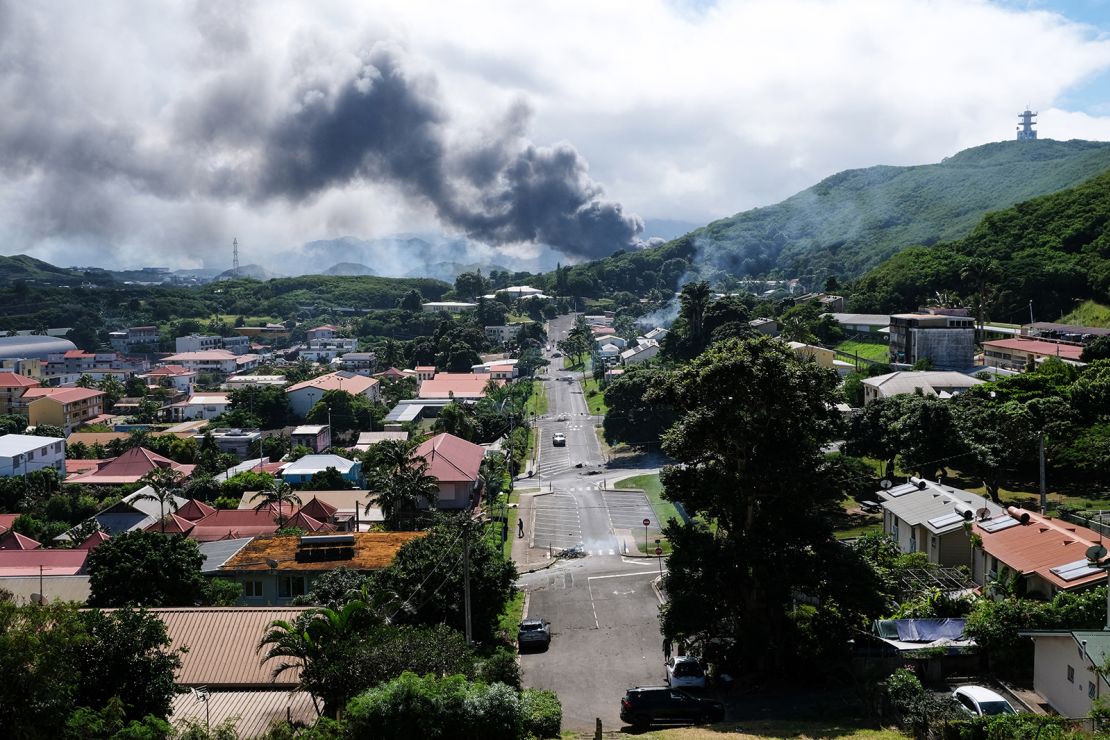
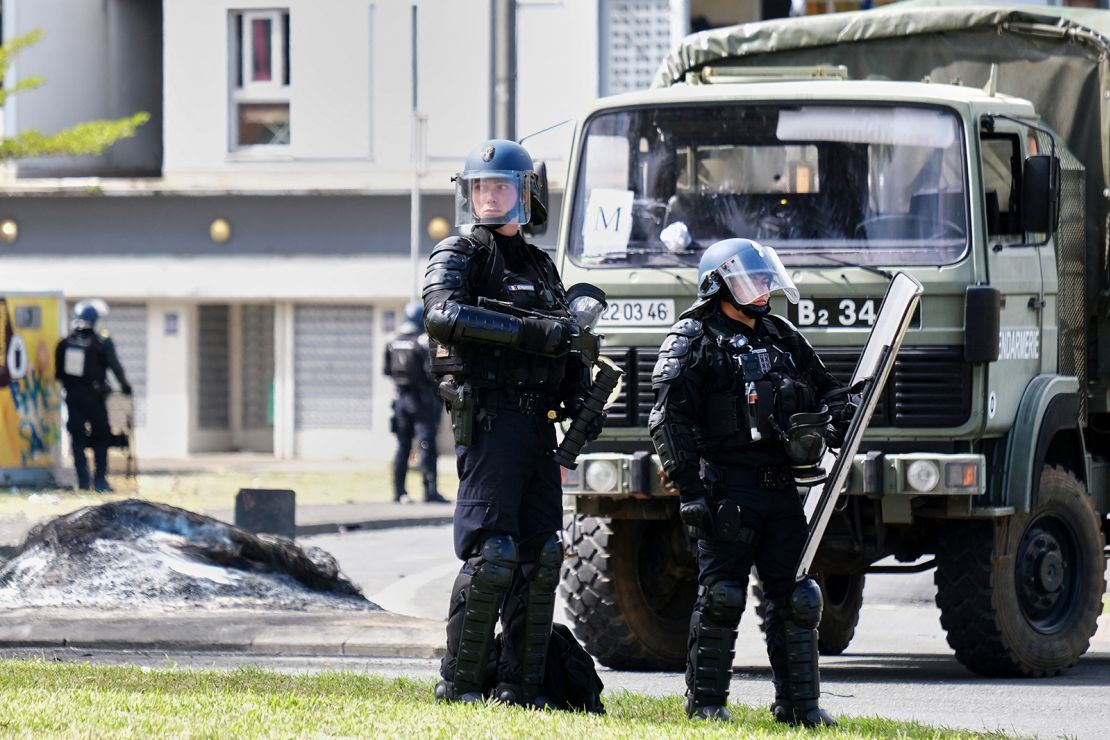
The vote
Colonial France took control of New Caledonia in 1853. White settlement followed and the indigenous Kanak people were longtime victims of harsh segregation policies. Many indigenous inhabitants continue to live with high rates of poverty and high unemployment to this day.
Deadly violence exploded in the 1980s eventually paving the way towards the Noumea Accord in 1998, a promise by France to give greater political autonomy to the Kanak community.
Multiple referendums were held in recent years – in 2018, 2020 and 2021 – as part of the agreement offering voters in New Caledonia the option to secede from France. Each referendum was voted down, but the process was marred by boycotts from pro-independence groups and by Covid-19.
Voter roles have been frozen since the Noumea Accord, the issue that France’s parliament was seeking to address in the vote that sparked this week’s violence.
French lawmakers in Paris voted 351 – 153 in favor of changing the constitution to “unfreeze” the territory’s electoral rolls, enfranchising French residents who have been in New Caledonia for 10 years.
The lists were frozen by the French government to appease pro-independence Kanak nationalists who believe new arrivals to the former colony, including from France, dilute popular support for independence.
Both houses of France’s parliament need to approve the constitutional change passed by the National Assembly.
On Tuesday, French Prime Minister Gabriel Attal said the government would not call a meeting of the parliament to vote on the motion before talks with Kanak leaders, including major independence alliance the Kanak and Socialist National Liberation Front (FLNKS).
“I invite New Caledonia’s political leaders to seize this opportunity and come to Paris for talks in the coming weeks. The important thing is conciliation. Dialogue is important. It is about finding a common, political and global solution,” Attal said on the floor of the National Assembly.
FLNKS issued its own statement Wednesday both condemning the vote at the National Assembly and calling for an end to the violence.
“FLNKS appeals to the youth involved in these demonstrations for appeasement and to ensure the safety of the population and property,” the statement read.



